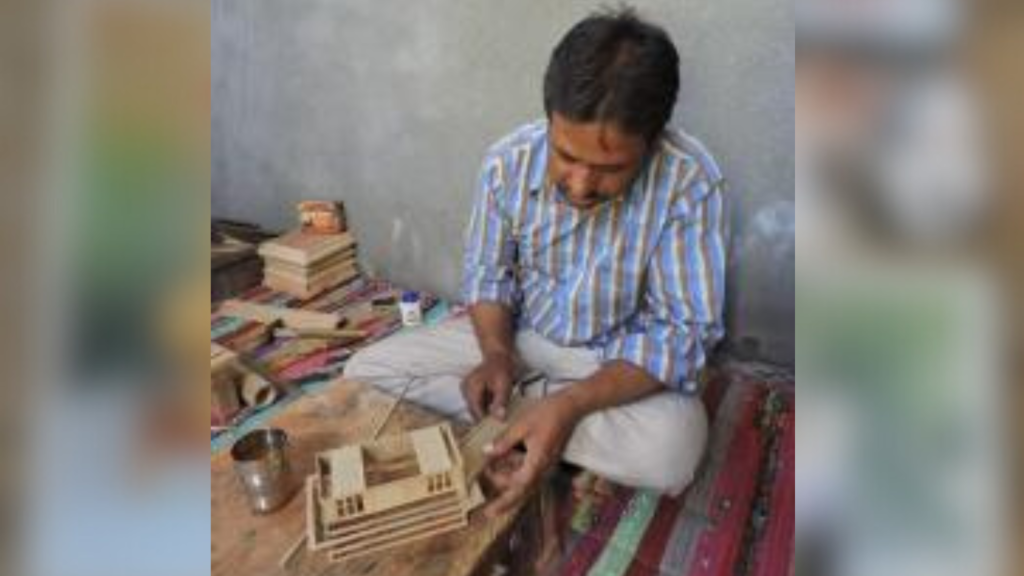
BAMBOO CRAFT - BANS KA KAAM
QUICK OVERVIEW
Origin: Jaipur, Rajasthan
Products: Temple Miniatures, Ships, Monuments, Name Plates, Animals
Tools Used: Carving knife, Scale, Scissors, Hammer, Pliers, Compass, Tweezers, Sandpaper
Craftsperson: Pawan Kumar

Tula Ram at work crafting the Mahamaya Mandir in Pangna Town
THE CRAFT
Several types of bamboo are locally available in Pangna’s neighbouring forests. Yet, bamboo craft is quite new to the region and is slowly gaining popularity.
Brought in from Rajasthan, this craft predominantly produces show/gift pieces that are displayed in local transport (busses), homes and offices. Some of the products made include temple miniatures, ships, famous monuments, name plates, animals etc. The intricate work involves using bamboo strips to construct a variety of forms that may or may not be encased in glass cases. Depending on the amount of detail, making a single structure could take anywhere between 3 days to a month.
THE MAKING
The process begins by taking basic photographs of the structure to be replicated in bamboo. The craftsmen then prepare a sketch with approximate measurements and dimensions. The bamboo is sliced into thin sheets or strips, and polished finely to give it a nice sheen. It is cut into smaller pieces and glued together with fevicol to build the structure.
Once the desired product is made, figurative details are carved on and the artifacts are polished with sandpaper before sale.

An assortment of tools used in the craft
THE CRAFTSMEN

Some of Tula Ram’s work across the years
Tula Ram is the first craftsman to bring bamboo craft to Pangna. In the business for the last 19 years, he learnt the trade from a distant relative who had studied the craft in Jaipur, Rajasthan, and spent 5-6 years as an apprentice before returning to Pangna to start his own practice. He specializes in making miniature replicas of temples, and his work is recognized across Himachal Pradesh.
Tula has received several commissions from known political leaders and important persons across the state. Today, he also conducts training sessions for interested youths and hopes the craft is carried forward.

Some of Tula Ram’s work across the years
